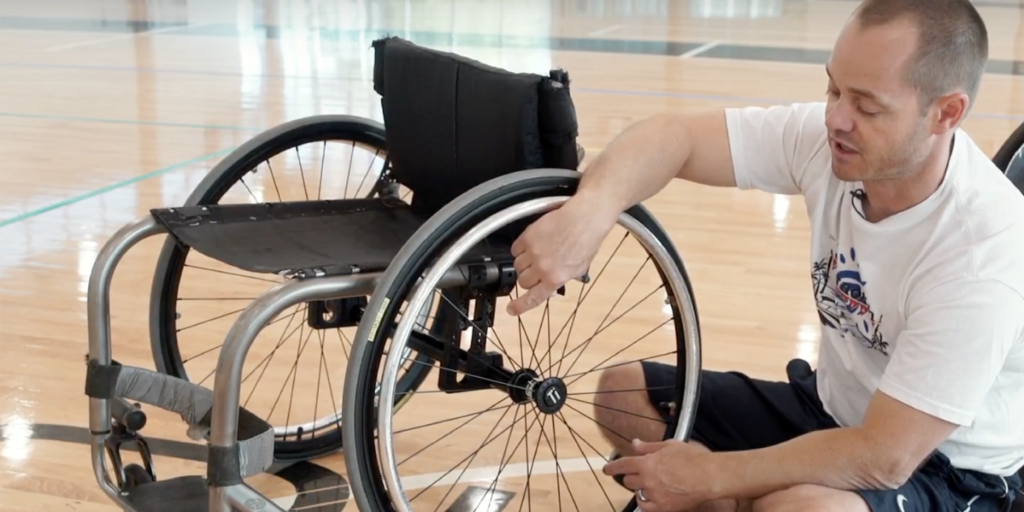We all know that mental health is important, but we often don’t prioritize it compared to our physical health. Sometimes we don’t take the time to manage our thoughts and emotions until we reach a breaking point. Frequent mental distress can also be more common for individuals with a disability compared to those without disabilities.
May is Mental Health Awareness Month, and there is no better time to commit to a new start for improving your mental health.
Better overall mental well-being can start with simple practices. These simple tasks can be done every day, and you don’t need special equipment. You can try these from anywhere!
Kalani Upshaw, NCHPAD Community Health Educator, shares these 10 things you can do every day to improve your mental well-being.
- Take up a relaxation practice: Spend a few minutes each day practicing mindfulness, meditation or deep breathing. This can help reduce stress, enhance concentration and promote a feeling of calmness and peace.
- Exercise regularly: Physical activity releases endorphins, chemicals in the brain that act as natural painkillers and mood elevators. Even a short 30-minute daily exercise can significantly lift your mood and reduce stress.
- Get enough sleep: Sleep has a profound impact on mental health. Aim for 7-9 hours of quality sleep per night to help regulate mood and improve brain function.
- Eat a balanced diet: Nutrition plays a key role in brain health. Eating a diet rich in vegetables, fruits, lean proteins and whole grains can help boost your mood and energy levels.
- Connect with others: Social interaction is vital. Spend time with friends or family, or foster connections by joining a club or group that interests you.
- Take breaks: When you’re feeling overwhelmed, take short breaks throughout the day. A few minutes away from your workstation or daily routines can help clear your mind and reduce stress.
- Set realistic goals: Set achievable goals each day, even if they’re small. Achieving goals gives a sense of satisfaction and purpose.
- Practice gratitude: Take a moment each day to think about the things you’re grateful for. Keeping a gratitude journal can shift your focus from what’s lacking to what’s abundant in your life.
- Limit screen time: Excessive use of screens can negatively impact mental health. Try to reduce the time spent on digital devices, especially before bedtime.
Seek professional help when needed: If you’re struggling with mental health issues, don’t hesitate to seek professional help, especially if it has been going on for two weeks or more. Talking to a therapist or counselor can provide support and strategies to manage your mental health effectively.
Your body and mind are closely connected. When you look after one, you often help the other too. Try these tips and hopefully you will notice a positive impact on your mental and physical health!
Here are some helpful resources from our team to help fulfill these practices:
Relaxation Practices: Our Guided Meditations on YouTube.
Exercises: Our Inclusive Home Workout Playlist on YouTube.
Searching for a way to connect with others? Learn more about NCHPAD’s Coffee Club!
To learn more about NCHPAD’s 6-week mental wellness promotion program, Growing Resilience Out of Wellness and Thoughtful Habits (GROWTH), visit this link.




